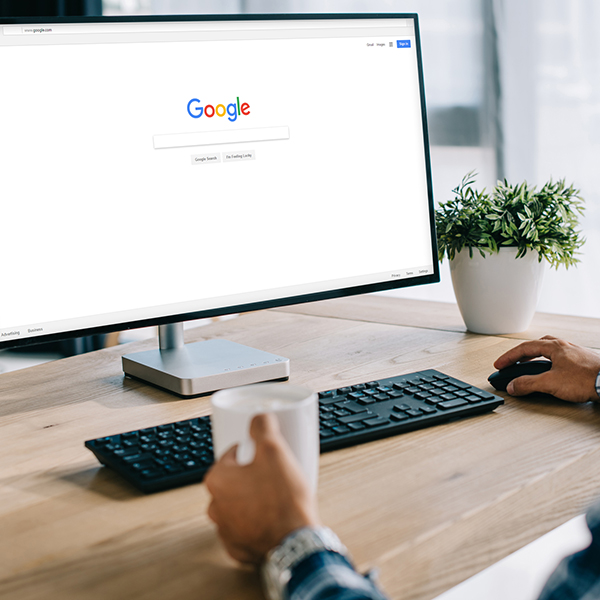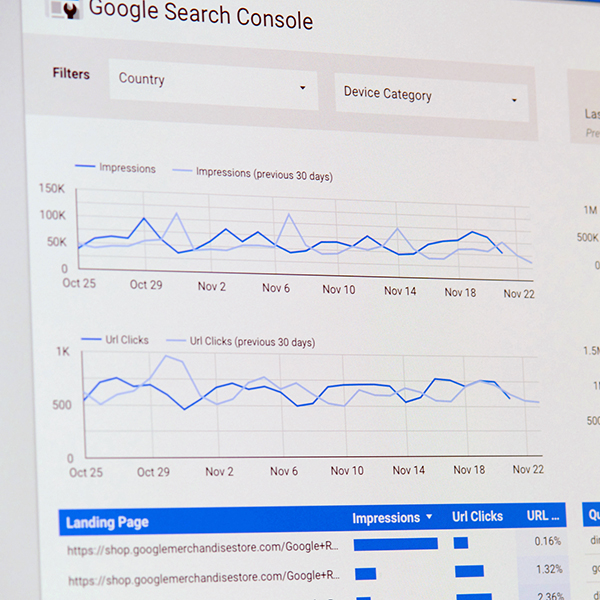Getting Indexed by Google
You’ve built a beautiful website, and you’re open for business. The only problem is that your website isn’t getting many organic visitors because Google hasn’t indexed it yet. Google is the world’s largest search engine, indexing millions of pages every day from websites worldwide. With more than 90% of all Internet searches starting on Google, getting indexed in Google is the holy grail to growing your business online.
However, due to its sheer volume, getting listed in Google’s organic search results isn’t as easy as it used to be. So, today, we’re going to explore ways to help your web pages get indexed by Google.
 How Google Indexes Content
How Google Indexes Content
Meet the Googlebot. Google has an army of crawler agents known as Google bots. These bots crawl websites, collecting the content and other technical parameters used to index and rank the content in Google’s search engine. These desktop and mobile robot crawlers follow the links on your web pages to additional on-page and off-page content. When the Googlebot successfully crawls your web pages, it may be added to the Google index. The Google bots may also return from time to time to check on your website for updates. However, the Googlebot can encounter website problems that impede indexing your content, such as thin or irrelevant content, 404 not found error, slow server response time, and missing or invalid links, for example.
Getting Your Website Indexed
You can do several things to help Google discover your website, index the content, and present it in relevant search results.
Google-friendly content: The quality of your website content is the single most crucial factor Google considers when indexing web pages. Your web pages should be well-written, accurate, and helpful. Also, ensure the majority of your content is text. Crawlers can’t read graphics, JavaScript, DHTML, or video content. You can use a text browser to see how the Googlebot crawlers display your web pages.
External links: The quality of external links pointing to your website can significantly influence indexing. When other quality websites link to your website, it increases your website’s credibility, increasing the likelihood that the Google bots will crawl and index your content. On the other hand, getting too many external links very quickly or external links from websites that Google considers spam or low-quality can negatively impact your website’s ability to be indexed.
Build a Logical Site Structure: When building your website, it should have a logical structure that will help visitors find the content they are looking for on your website. Also, use the right keywords to create internal links to other pages on your website to help the crawlers see and index the pages on your website.
Use Canonical URLs: Google has two types of crawlers: one for desktop rendering and the other for rendering mobile site content. Using canonical URLs to differentiate between your desktop and mobile web pages can help ensure the bots can crawl your web pages successfully. Canonical URLs can also help avoid duplicate content issues that prevent your web pages from appearing in search results.
Create an XML Site Map: Creating an XML site map and installing it on your domain will make it easier for the Googlebot to find all your relevant web pages when it discovers your website. While a site map doesn’t guarantee inclusion, it will help the crawlers find and index your web pages.
Verify Your Robot.TXT File: A robot.txt file lets the search engine crawlers know which web pages are accessible and which pages they should exclude from the index. Web pages listed in your robot.txt file that contain the [noindex] attribute will not be indexed. So, double-check this file to ensure your website is not inadvertently blocking content that you want Google to index.
 Is Your Content Indexable?
Is Your Content Indexable?
Google must be able to read your website content to be included in the index. You can check the content of your website by logging into the Google Search Console. Then click on the URL Inspection link and enter the URL of your web page.
Submitting Your Content for Indexing
You can also use the Google search console to submit a URL for indexing. For multiple URLs, click on site maps in the search console to submit your XML site map.
Is My Website Indexed in Google?
Use the search console to check the index status of a URL or a site map. If any indexing errors are listed, correct the error, and re-submit your URL for indexing. It may take several days for your web pages to be fetched, crawled, and indexed by Google.
Your website has the potential to increase your business leads exponentially, but first, it must be found and indexed by Google. Since 1998, Frank Motola, President of Brandtastic, has been helping clients get results. Call Frank at 813-441-0275 today!



